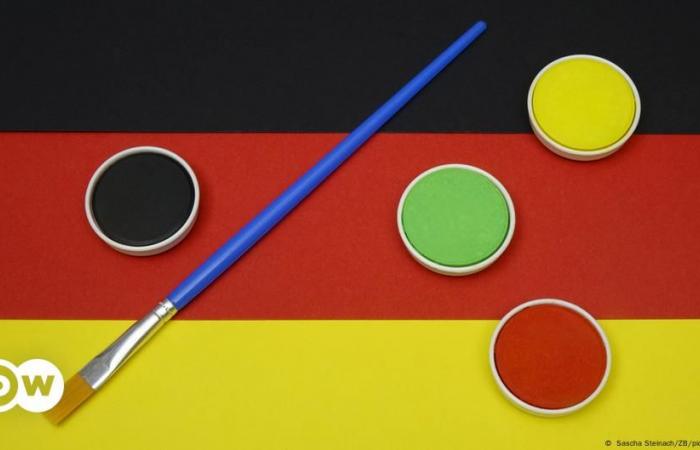This is more than just a reshuffle…it is the implosion of Germany’s three-party ruling coalition.
On the evening of Wednesday, November 6, Chancellor Olaf Scholz asked President Steinmeier to dismiss the Finance Minister. The latter, a figure in the liberal FDP party, had openly opposed the chancellor for months. He was also replaced by a close advisor to Olaf Scholz.
Only one of the liberal ministers decided to stay in the government, the Minister of Transport, but he announced that he wanted to leave the FDP party.
How did the three ruling parties – the SPD, the FDP and the Greens – end up breaking their government alliance?
The German president may urge political leaders to “reason” and “responsibility”, but Frank-Walter Steinmeier said it himself in his speech this morning (07.11.24): the “country needs stable majorities and effective government. Hence the convening, expected soon, of early legislative elections.
Reference from the Minister of Finance
Chancellor Olaf Scholz did not hide his frustration in his address to the nation on Wednesday evening, from which here is an extract regarding the sacked Finance Minister, Christian Lindner, of the FDP:
“Too often, necessary compromises have been stifled by public squabbles and loud ideological demands. Too often, Federal Minister Lindner has inappropriately blocked laws. Too often, he has engaged in petty partisan tactics. Too often often he broke my trust.”
Too heterogeneous a coalition
The three parties that made it up – the social democrats of the SPD, the FDP and the Greens – were only able to overcome their programmatic differences for a while.
However, the coalition’s projects were initially ambitious for three ideologically distant parties on paper: Germany was to become a model for climate protection, 400,000 new homes were to be built.
The State had to be modernized while retaining a social character: aid for the unemployed was changed to “citizen’s income”, basic protection for children had to be introduced, the level of pensions stabilized, the minimum income increased, as well as as investments in science and research.
To mark their brand new alliance, environmentalist and liberal ministers published a group selfie, in September 2021, on all their Instagram accounts at the same time, accompanied by the following caption: “In the search for a new government, we are looking for commonalities and bridges to go beyond what separates us. And we are finding them. What an exciting time.”
At the time, the three parties described negotiations which focused on their different points of view and ideological differences as “enriching”. They claim that “opposites complement each other.”
Olaf Scholz (SPD), the chancellor, praises a “coalition of equals”.
But quickly, fundamental differences resurface.
Welfare, asylum policy, public spending, arms sales…many issues became bones of contention and German citizens quickly got the impression that the government was spending more time arguing than ‘to make decisions.
Money: where the problem lies
Finances and social and energy policy have crystallized their differences. The liberals advocated austerity and control of public spending, while the Greens and the social democrats hoped to be able to inject more into social issues, housing construction and the energy transition in particular.
The Constitutional Court ruled at the end of 2023 that it was not in compliance with the Basic Law for the government to decide to use 60 billion euros originally planned for the fight against the Covid-19 pandemic to reallocate them to energy policy.
This verdict prevented the SPD and the Greens from injecting these “surplus” billions into climate protection, without having to cut corners on the federal budget. Finances were in fact held within the government by the sacked FDP minister, Christian Lindner, parsimonious in matters of public spending and hostile to the State increasing the debt.
Global crises
And then there were the exceptional crises which accumulated during this mandate: the end of the Covid-19 pandemic, the invasion of Ukraine by Russia, the suspension of deliveries of Russian gas and oil, the threat of an energy crisis, inflation.
For years, the worm was in the fruit and this breakdown of the coalition is hardly surprising.
The dispute has taken so much precedence over political discussion in recent months, to the point that the SPD, Greens, FDP coalition has become the most unpopular government in the entire history of the Federal Republic.
The disenchantment of citizens has already been reflected in the ballot boxes during the last regional elections in the East.
The hopes of Friedrich Merz (CDU)
The conservative opposition, led by Friedrich Merz in the CDU, hopes that its leader will be the next chancellor. She asks Olaf Scholz to ask the question of confidence in Parliament “next week” at the latest.
MPs are expected to vote on January 15 for no confidence in the outgoing government, which no longer has a majority to pass its legislative proposals. The way would therefore be open to the organization of early legislative elections in March 2025.
Until then, the Scholz government will continue to carry on with current affairs.
Despite these new uncertainties, NATO Secretary General Mark Rutte says he is confident about German defense policy and foreign policy.
According to him, Germany will still be able to continue to play fully “its role on the international scene”.






